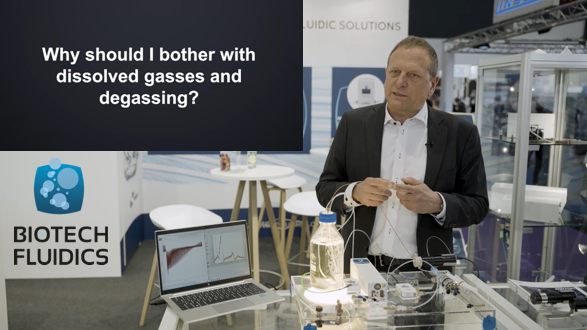
Why should I bother with dissolved gases and degassing?
Gases do naturally dissolve in all types of liquids, and if they outgas due to changes in the surrounding conditions, they will form bubbles. In a fluidic system, such bubbles may impact the reliability of pump flow rate and signal stability from inline sensors. This results in reduced precision and increased uncertainty in the output from the fluidic system.
In the video interview below, Dr. Fritiof Pontén, CEO of Biotech Fluidics, explains how the installation of a good degasser in principle can make any fluidic system better by reducing fluctuations in flow rate and sensor signals. This was recorded by LCGC International at the exhibition Analytica 2024 in Munich, Germany.
Dr. Pontén highlights how the formation of bubbles can be particularly troublesome in fluidic systems where factors that are critical to the solubility of gases suddenly may change along the flow path. Negative pressure transients, local hot spots, and mixing of two fluids are emphasised as particularly problematic in high-precision fluidic systems unless the dissolved gases first have been reduced or removed.

